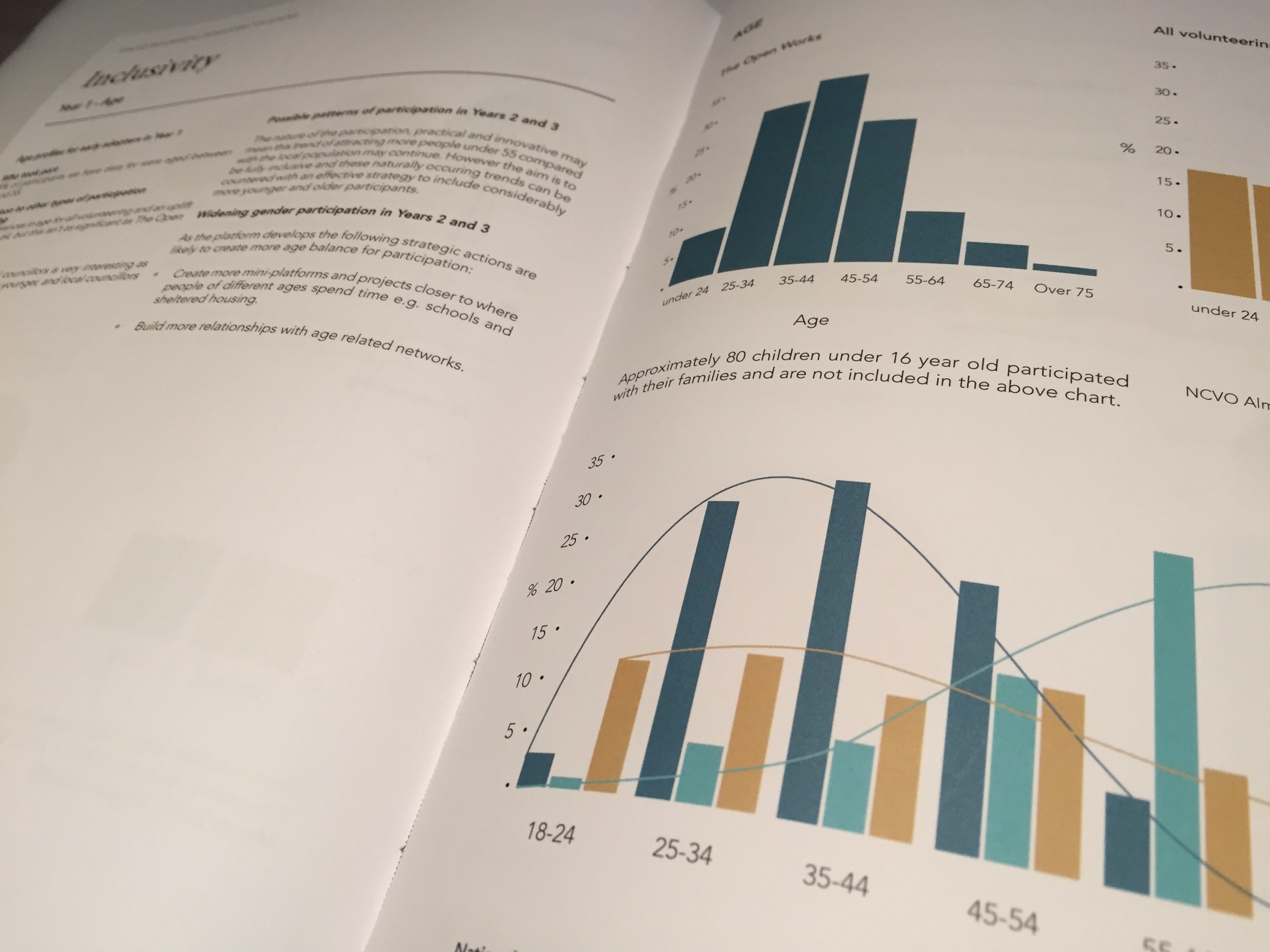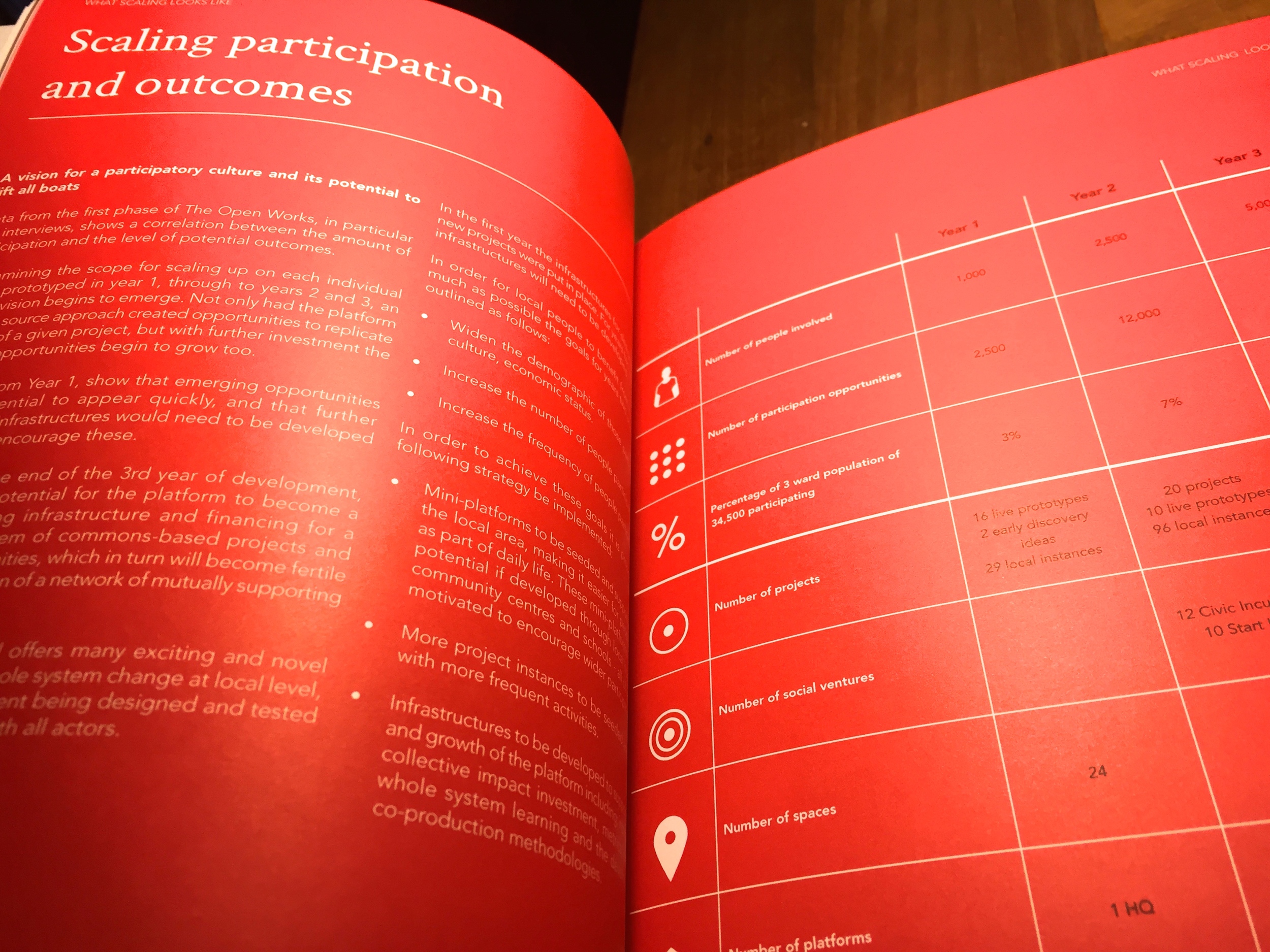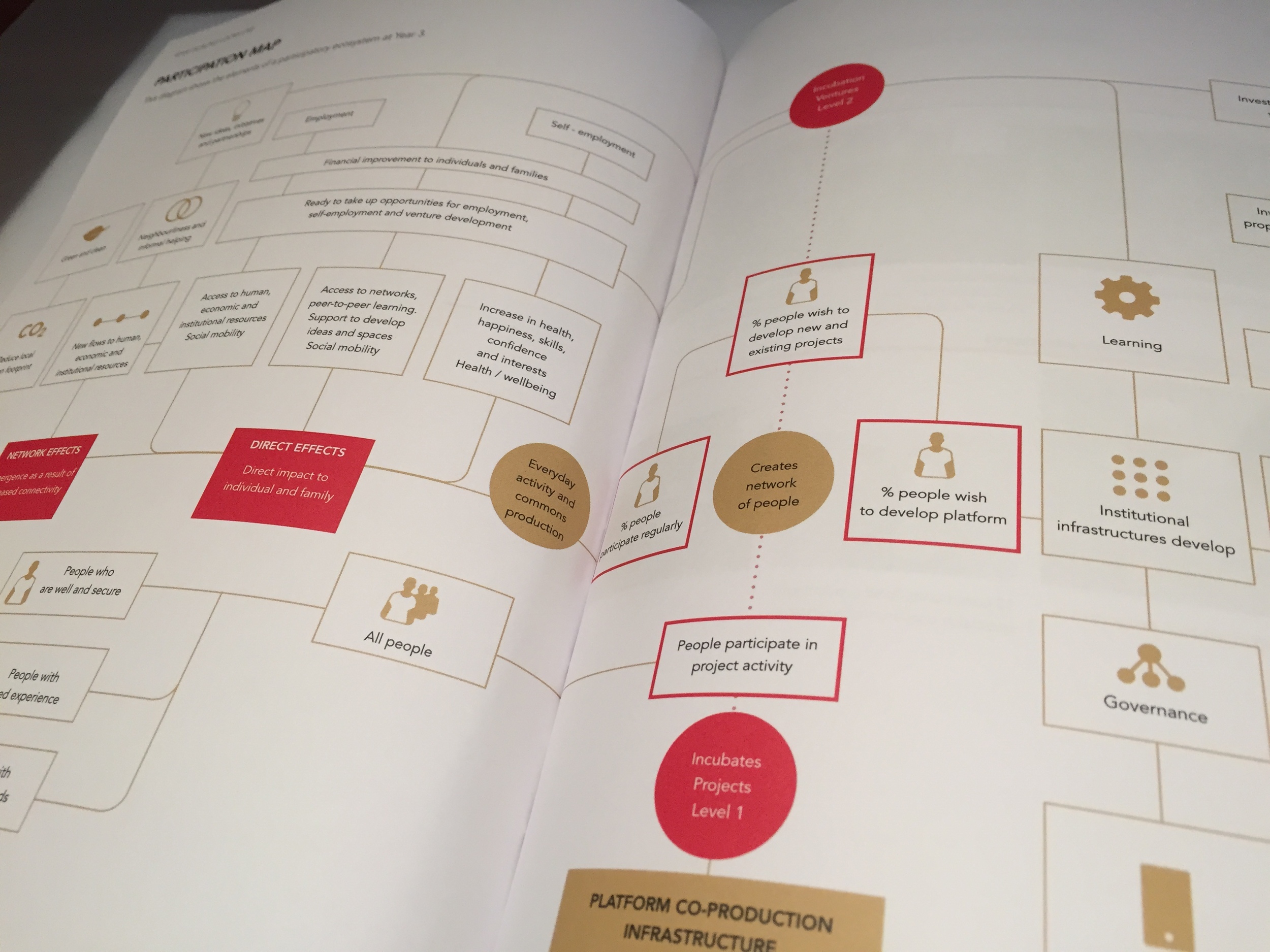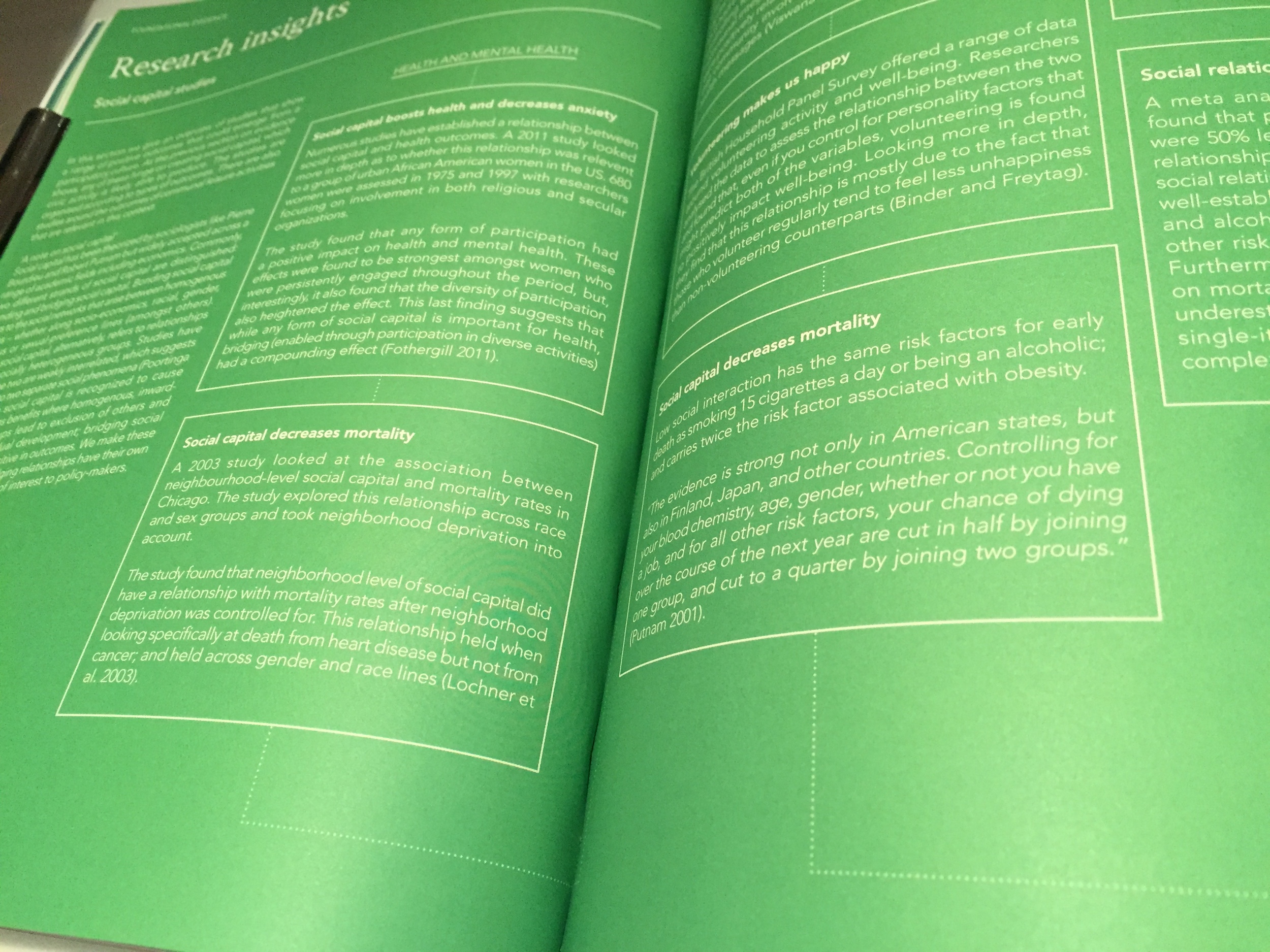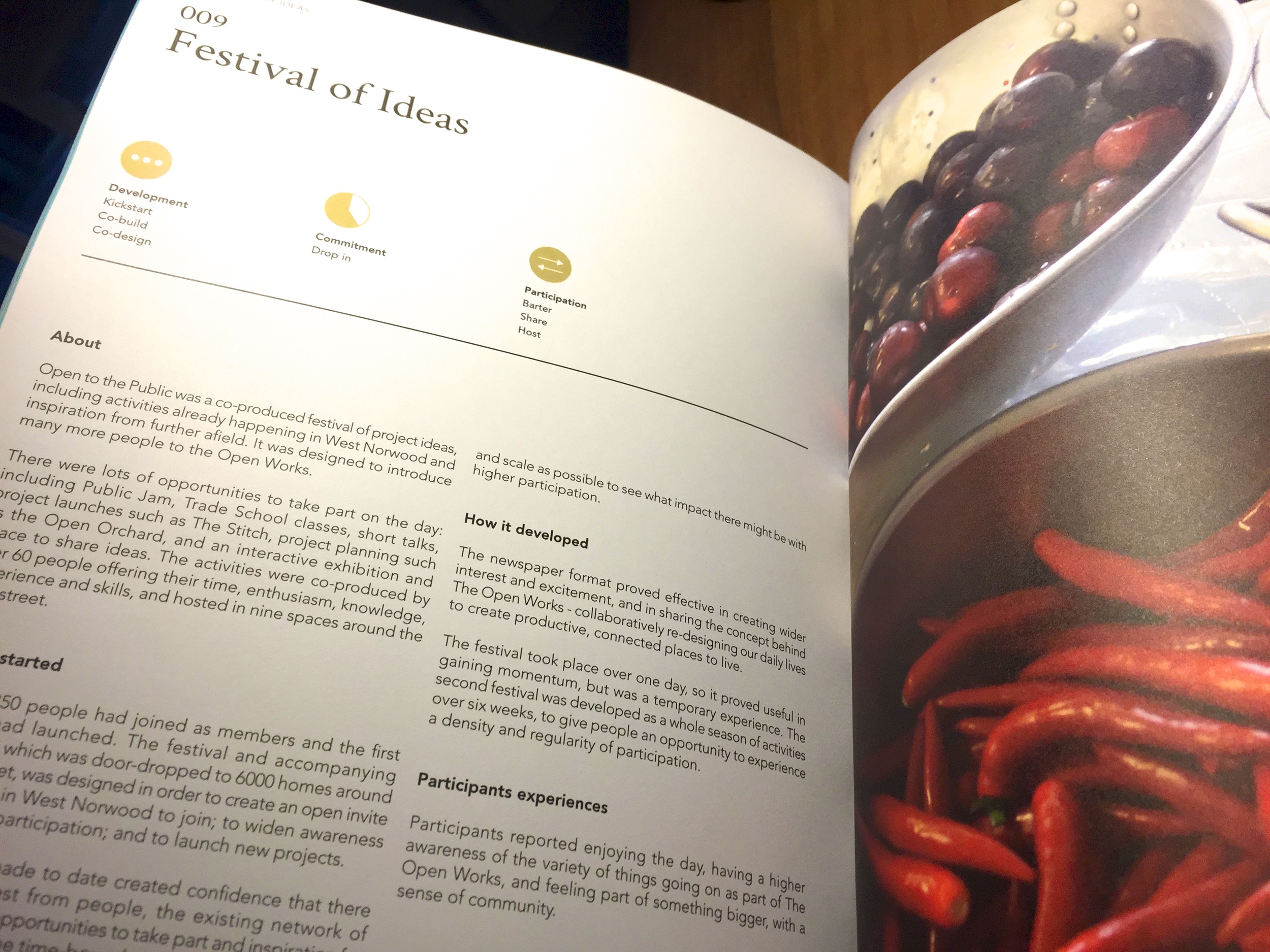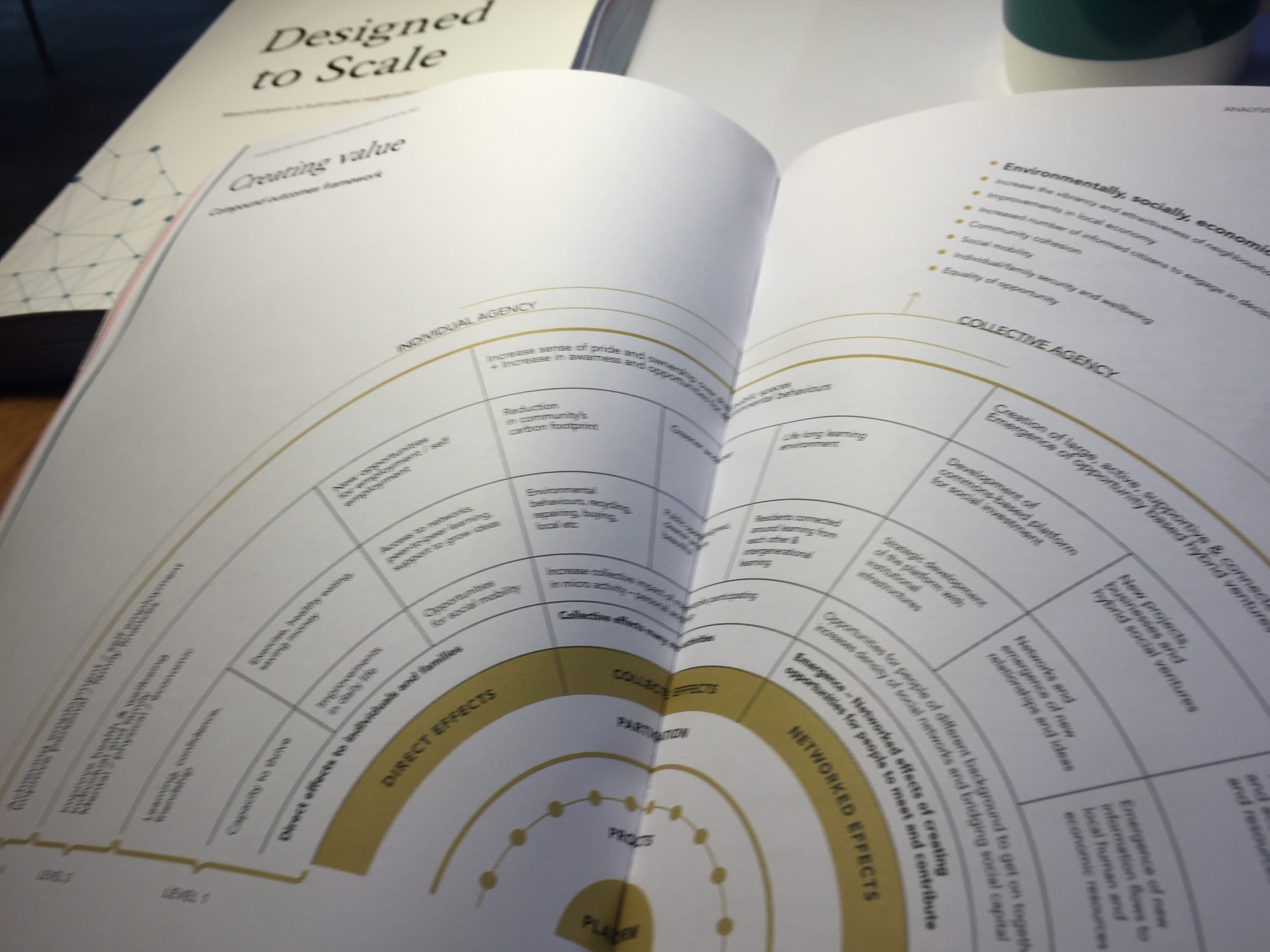DESIGNed TO SCALE
Read the research report that documents the evidence base for the Participatory City project.
The Open Works research project aimed to test if a platform approach could scale up the new type of ‘participation culture’ that has emerged over the last 6 - 10 years. It aimed to discover if a high density of this type of micro participation activity, built into the fabric of everyday life, has the potential to aggregate and combine to achieve lasting long term change, both for individuals and for neighbourhoods.
Build it to test it
A small, living prototype system was built in order to test the idea and this was done in West Norwood, Lambeth, London, in 2014/15. Lambeth Council and Civic Systems Lab formed The Open Works team to co-create a network of 20 practical projects with 1000 local residents. These projects were inspired by ideas from across the world that offered the potential to support a new and more sustainable way to live our everyday lives.
These 20 projects created new and engaging opportunities for sharing knowledge, spaces and equipment; for families to work and play together; for bulk cooking, food growing and tree planting; for trading, making and repairing and for suppers, workshops, incubators and festivals. The full report below documents the findings from this experiment.
Acknowledgements
The Open Works project was inspired by the innovative work of hundreds of people who are finding new and ingenious ways to reshape the society and communities in which they live. These amazing people have shared their ideas and methods generously through The Community Lover’s Guide to the Universe series. These crowd-sourced books have been published following the publication of Hand Made in 2010. The Compendium for the Civic Economy, which researched 25 trailblazers, published in 2011, has been instrumental in understanding further the hybridisation of existing models for sustainability and prosperity.
Thank you to the many people working in connected and overlapping fields - around participation, but also working on the components and new strategic methodologies on which the project has relied heavily.
In particular we also want to recognise the early work of the Sustainable Everyday Project for their Creative Communities and Collaborative Services reports, both in 2007, visualising future scenarios. These extraordinary pieces of work have been instrumental in shaping our thinking about the potential for participation culture to become the building block of creating a positive future more collaboratively.
Thank you to Lambeth Council for their collective vision. Their determination to build a future based on collaboration has driven the testing of this new approach.
Thank you to The Open Works team who worked tirelessly to build the platform together.
Thank you to our research advisors, who have supported and challenged us, in particular to Lankelly Chase Foundation. This research report would not have been possible without their funding.
